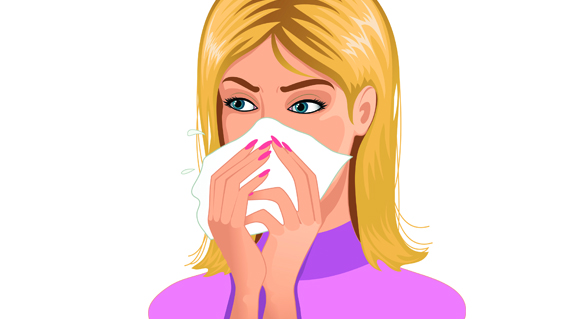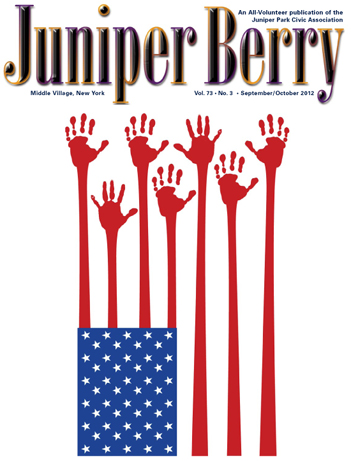Fall brings many changes and among those is the return of hay fever and asthma. The summer is relatively a quiet allergy time, however by the end of August, ragweed season is in full bloom. Ragweed, as its name suggests, is a weed that grows in the summer and flowers in the fall. The pollen produced is spread by the wind and is most prevalent in the early morning and after a rain shower. It grows along the roadside and in recently disturbed ground, such as construction sites. Goldenrod is often mistaken for ragweed, but is not an important cause of allergy. During this time, if possible, it is better to avoid morning activity if you have allergy symptoms. Coricosteroid nasal sprays and non-sedating antihistamines are helpful along with eyedrops. The season may last into October and heavy rains often dampen its severity.
Once the colder weather sets in, the leaves fall and mold spores begin to predominate outdoors. They usually produce nasal congestion, sinus pressure and wheezing in allergic patients. This may last up until the first freeze. Indoors with windows closed and the heat on, house dust mites multiply and animal dander increases significantly, worsening nasal symptoms. Relative indoor humidity increases providing a favorable environment for dust mites, which are found in carpet, upholstered furniture, mattresses and pillows. Encasing pillows and mattresses in allergen-proof covers can be very helpful. Frequent dusting with a trapping cloth and using a vacuum with a HEPA filter reduces the allergen load in the home.
The humidity falls off by December and allergy symptoms improve. In December, a few patients are affected by the family Christmas tree. These symptoms are thought to be provoked by mold and dust.
In fall there is an increase of upper respiratory tract infections brought on by virus, sudden
weather change and decreased air quality. Asthma rates are highest at this time especially for children.
Allergy symptoms interfere with both work and play and may lead to asthma attacks and hospitalization during this season. Help is available so make sure to check in with your primary doctor or if necessary an allergy or a lung specialist.
Dr. Peter Gontzes,
is board certified in Allergy & Immunology and has 31 years of experience.
He is a resident of Middle Village and a member of the Juniper Park Civic Association.
Peter Gontzes MD
9231 57th Ave
Elmhurst, NY 11373
(718) 544-3727



